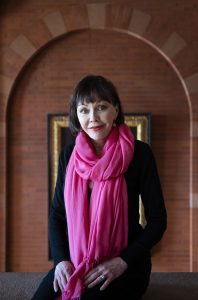I’ve spent my life on a journey of reading: from a child who learned to read early and loved being immersed in a book to a mother who watched her own children struggle with learning to read to a professional instructing teachers of reading — I’ve experienced the reading spectrum. Reading is an invaluable skill for every aspect of an individual’s life. However, not all children learn to read automatically, especially those with dyslexia, and our public school systems haven’t given them a chance. I have a passion and I’m on a mission: changing the future for students with dyslexia.
For more than 25 years, science has informed the field of reading instruction, yet most teachers nationwide are not being taught the science of reading and the underlying linguistic structure of written language in their teacher preparation programs. As a result, millions of children become “instructional casualties” and fail academically. Teachers need to understand:
How do children learn to read?
Why do some students struggle?
What can we do to make sure that all children learn to read?
Since 2008, I’ve worked to establish Colorado College’s Master of Arts in Teaching – Literacy Specialist Program (MAT-LSP). CC is now one of the few colleges or universities in the United States nationally recognized for preparing highly qualified reading teachers and dyslexia experts.
During my time at Colorado College, I’ve taught more than 120 teachers in this intensive two-year program, the only college or university program in Colorado recognized by the International Dyslexia Association. Most of those teachers now hold national certification through the Academic Language Therapy Association (ALTA) as Certified Academic Language Therapists. The MAT-LSP also allows currently licensed Colorado teachers to earn a Reading Specialist Endorsement —and CC is one of only four institutions of higher education in Colorado to do so. The college has worked to ensure that MAT-LSP graduates earn the highest credentials available to Colorado reading teachers.
Our MAT-LSP teachers dedicate themselves to learning how to work with struggling readers, especially students with dyslexia, a specific learning disability that is neurological in origin and characterized by accurate and/or fluent word recognition as well as poor spelling and decoding abilities. Too many teachers earn teaching degrees, then have to pursue additional professional development to become highly qualified in reading. At Colorado College they can do this all in one place at one time.
My interest in dyslexia is a personal one: My husband and three of my four grown children are dyslexic. In 2001, my husband and I founded the Colorado Literacy & Learning Center, a 501(c)(3) dedicated to improving literacy across Colorado with an emphasis on the diagnosis and remediation of dyslexia. Last year, the Colorado Literacy & Learning Center was authorized to open Orton Academy, the first K-8 public school for students with dyslexia in Colorado. The school will be located in El Paso County and ultimately will serve 360 students identified with dyslexia, at no cost.
My goal? The impact of excellent reading instruction from teachers graduating from CC’s MAT-Literacy Specialist Program and the opportunities provided by Orton Academy will spread across Colorado and the U.S., impacting countless numbers of children who otherwise would “fall through the cracks” because of unaddressed dyslexia. We can change their futures.
Dyslexia – True or False?
True:
- Language -based learning disability
- Gifted in many areas
- Affects 10 – 20% of all individuals
- 59% of prison inmates struggle with dyslexia, yet over one-third of world’s most successful entrepreneurs claim to be dyslexic
False:
- Sees letters backwards
- Low intelligence
- Attributed to laziness
- No academic future or professional success
- A rare disability
Lynne Fitzhugh, Ph.D., CALT-QI, is founder and president of the Colorado Literacy & Learning Center and director and lecturer of the Master of Arts in Teaching – Literacy Specialist Program at Colorado College. A Certified Academic Language Therapist and Qualified Instructor, Fitzhugh is president-elect of the Academic Language Therapy Association and serves on various professional boards. She is a representative to the National Joint Committee on Learning Disabilities and a former board member of the International Dyslexia Association.
Fitzhugh received her doctorate in psychology from Southern Methodist University. She completed her CALT requirements through Southern Methodist University’s Learning Therapy Department and her Qualified Instructor of CALTs from the Luke Waites Center for Dyslexia at Texas Scottish Rite Hospital for Children in Dallas, Texas. She was the 2018 recipient of the Council of Learning Disabilities Floyd G. Hudson Outstanding Service Award and the Colorado Council of Learning Disabilities 2018 Professional of the Year Award.
